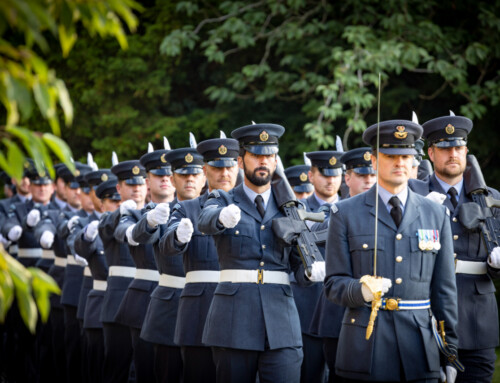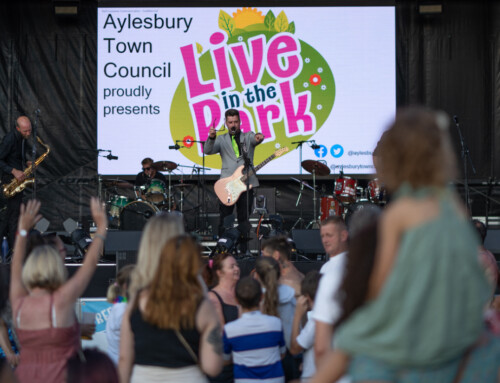‘Think before you click’ scam alerts have been sounded by Trading Standards officers to try to head off scams in the wake of the launch of the Government’s coronavirus Test & Trace system.
Virus lockdown has seen an estimated 40% increase in reported doorstep, phone and email scams across Buckinghamshire, and Trading Standards say their priority is to protect residents from potential text, email and phone frauds based on the new NHS Test & Trace system.
They warn people to be wary of ‘phishing’ texts and emails, to ‘think before you click’ on a link in a text or email suggesting, for example, that someone testing positive to Covid-19 had come into contact with them and recommending a click-link for more help.
Fred Wilson, Buckinghamshire Council’s Cabinet Member for Regulatory Services, said:”The important thing to remember is to always be alert. If in doubt, do NOT click on any links that could send your details straight to the scammers.”
He said although alerts from the NHS Test & Trace service could come by text, email or phone call, there was clear Government guidance as to how it works, and there was no need to give financial information as it is a free service.
Fred said that while traditional scams targeted older and more vulnerable people, Buckinghamshire and Surrey Trading Standards warned lockdown scams are no respecter of age or socio-economic profile.
Classic examples so far have ranged from emails and texts claiming you are due a refund from your TV licence, council tax or income tax, using Covid-19 as bait and providing a dodgy link, to fake texts purporting to be from the government promising a ‘relief’ payout and providing a fake link.
Other scams have involved shopping orders: facemasks that never arrive, hand sanitiser that isn’t, even fake NHS lanyards for sale.
“Criminals can spoof texts, making messages appear in a chain of texts alongside previous genuine messages making them look so plausible,” said Fred. “So as the Test & Trace scheme rolls out, the warning is to be very alert. Don’t give them a foothold in Buckinghamshire!”
Fred said residents should forward dodgy-looking emails to the National Cyber Security Centre at report@phishing.gov.uk
Lockdown scam losses could have been much worse, were it not for Trading Standards officers’ vigilance and preventive action against scam phone calls, which try to get residents’ bank details.
They have supplied potential victims with free Truecall blocking devices that during four months stopped more than 1,400 nuisance phone calls, 276 of which were fraudulent, saving residents an estimated total of £830,000 in potentially scammed cash. In addition Trading Standards had 43 unsolicited calls reported.
Since the Truecall initiative was started in 2014, Trading Standards report that 35,240 scam calls have been blocked, which could have cost residents in excess of £380,000 in potentially scammed cash.
As lockdown scams continue, Trading Standards advice to residents is:
- Be sceptical, don’t be afraid to delete the email/text or put the phone down.
- Take your time, don’t be rushed.
- Know who you’re dealing with: if you need help, talk to someone you know or get in touch with Trading Standards advice line on 0300 123 2329
- Protect your financial information, especially from people you don’t know.
- Never engage with someone or allow them access unless you are able to verify their authenticity and who they are.
Residents who are being subjected to nuisance calls, can request a Truecall phone blocker from Trading Standards by emailing trading.standards@bucksandsurreytradingstandards.gov.uk
Government Test & Trace guidance
https://www.gov.uk/guidance/nhs-test-and-trace-how-it-works
Contact tracers will:
- call you from 0300 013 5000
- send you text messages from ‘NHS’
- ask you to sign into the NHS test and trace contact-tracing website
- ask for your full name and date of birth to confirm your identity, and postcode to offer support while self-isolating
- ask about the coronavirus symptoms you have been experiencing
- ask you to provide the name, telephone number and/or email address of anyone you have had close contact with in the two days prior to your symptoms starting
- ask if anyone you have been in contact with is under 18 or lives outside of England
Contact tracers will never:
- ask you to dial a premium rate (09 or 087) number to speak to them
- ask you to make any form of payment or purchase a product or any kind
- ask for any details about your bank account
- ask for your social media identities or login details, or those of your contacts
- ask you for any passwords or PINs, or ask you to set up any passwords or PINs over the phone
- disclose any of your personal or medical information to your contacts
- provide medical advice on the treatment of any potential coronavirus symptoms
- ask you to download any software to your PC or ask you to hand over control of your PC, smartphone or tablet to anyone else
- ask you to access any website that does not belong to the government or NHS






